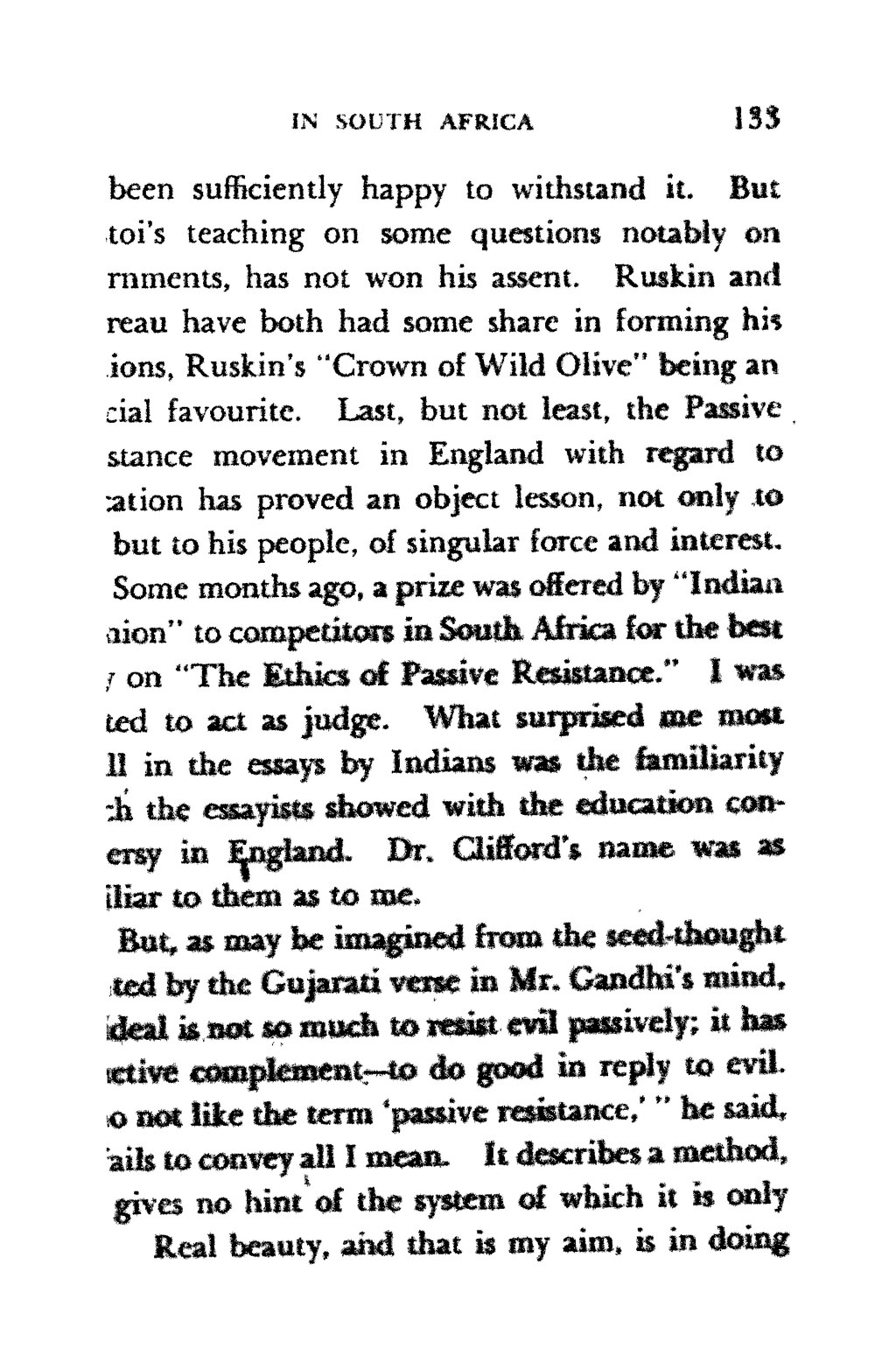not been sufficiently happy to withstand it. But Tolstoi's teaching on some questions notably on governments, has not won his assent. Ruskin and Thoreau have both had some share in forming his opinions, Ruskin's "Crown of Wild Olive" being an especial favourite. Last, but not least, the Passive Resistance movement in England with regard to education has proved an object lesson, not only to him but to but to his people, of singular force and interest.
Some months ago, a prize was offered by "Indian Opinion" to competitors in South Africa for the best essay on "The Ethics of Passive Resistance." I was requested to act as judge. What surprised me most in all the essays by Indians was the familiarity which the essayists showed with the education controversy in England. Dr. Clifford's name was as familiar to them as to me.
But, as may be imagined from the seed-thought planted by the Gujarati verse in Mr. Gandhi's mind, his ideal is not so much to resist evil passively; it has an active complement—to do good in reply to evil. "I do not like the term 'passive resistance,'" he said, "it fails to convey all I mean. It described a method, and gives no hint of the system of which it is only a part. Real beauty, and that is my aim, is in doing
